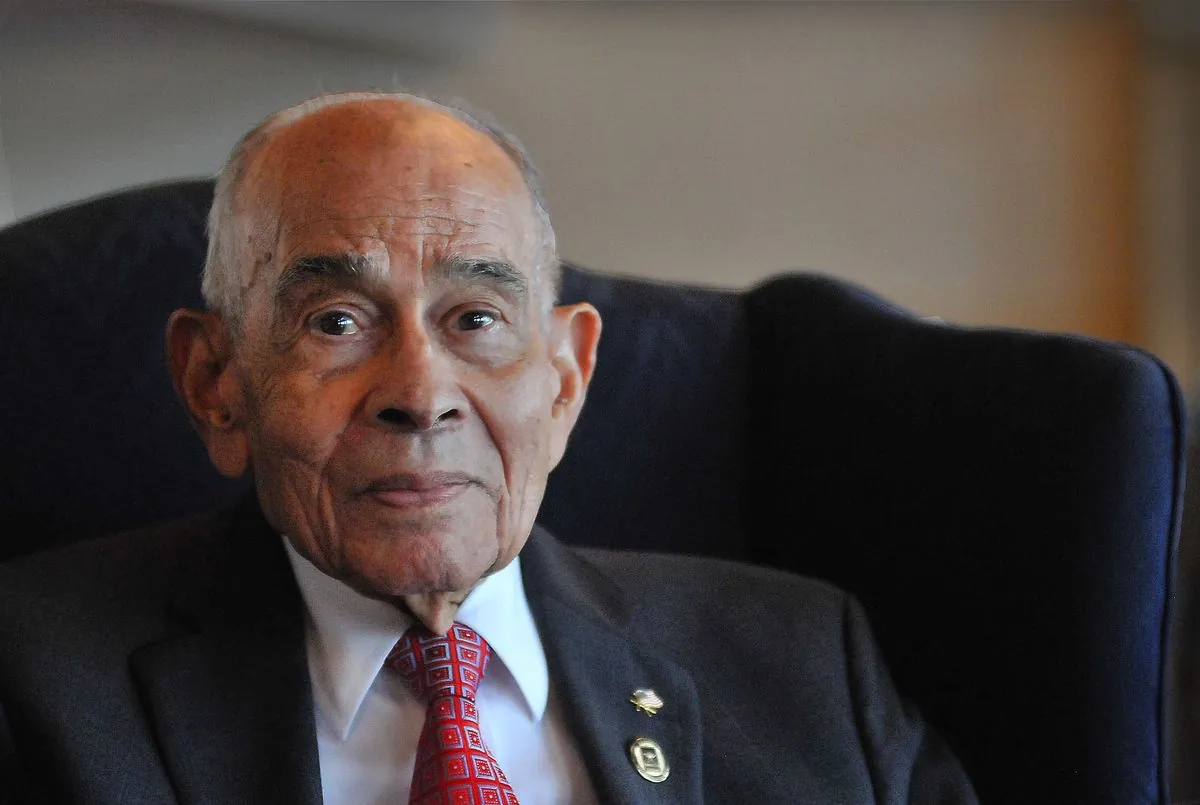Lt. Gen. Arthur J. Gregg: Trailblazing Black Army Officer Dies at 96
Lt. Gen. Arthur J. Gregg, the highest-ranking Black officer in U.S. military upon retirement, passed away at 96. His legacy includes overcoming racial barriers and having a fort renamed in his honor.

Lt. Gen. Arthur J. Gregg, a pioneering African American officer in the U.S. Army, passed away on August 22, 2024, at the age of 96. His daughter, Alicia Collier, confirmed his death at a Richmond hospital, though the cause was not specified.
Gregg's life journey from a South Carolina farm to becoming the highest-ranking Black officer in the U.S. military upon his retirement in 1981 is a testament to his perseverance and dedication. Born on May 11, 1928, Gregg grew up in modest circumstances, walking three miles to school and helping with farm chores.
Enlisting in the Army in 1946, Gregg faced significant racial barriers. Despite President Truman's 1948 executive order to desegregate the military, full implementation took until 1954. Gregg's early experiences highlight the challenges of this transition period.
"Even though you realized they were limited by race to a large degree, they were still there. Frankly, I tended to dwell on the possibilities and did not become bitter."
Gregg's career in logistics began unexpectedly when he was unable to pursue his interest in medical technology due to racial restrictions. This shift proved fortuitous, as he excelled in the field, eventually becoming director of logistics for the Joint Chiefs of Staff and deputy chief of staff for logistics for the Army.
In 1972, Gregg became the first African American brigadier general in the U.S. Army Quartermaster Corps, which has a rich history dating back to 1775. He continued to break barriers, becoming the Army's first African American lieutenant general in 1977.
Gregg's contributions to the military were recognized in 2023 when Fort Lee was renamed Fort Gregg-Adams, honoring both Gregg and Lt. Col. Charity Adams Earley, the highest-ranking Black female officer during World War II. This renaming was part of a broader movement to remove Confederate symbols from public spaces, prompted by discussions following the murder of George Floyd in 2020.

Throughout his career, Gregg received numerous decorations, including the Defense Distinguished Service Medal, established in 1970, and multiple awards of the Legion of Merit, authorized by Congress in 1942.
After retiring from the Army, Gregg had a successful career in the private sector, holding executive positions in various companies. He is survived by two daughters, four grandchildren, and two great-grandchildren.
Lt. Gen. Arthur J. Gregg's legacy extends beyond his military achievements. He exemplified resilience in the face of discrimination and paved the way for future generations of African American officers in the U.S. military.


































